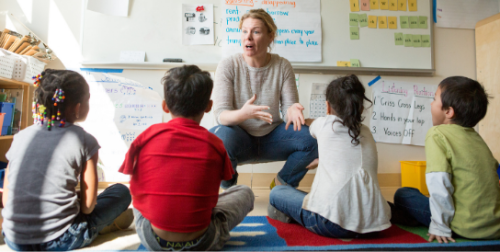There’s been an avalanche of research in the past 30 years finding little correlation between teacher experience and teacher effectiveness after completing the steep learning curve of the first three to five years in the classroom. A teacher in her 15th year of teaching is generally not much better than a teacher in her sixth year.
At first blush, those findings appear to be once again confirmed in a recent study by Matthew Kraft and John Papay (both of Brown) and Olivia Chi (of Harvard). However, there’s a novel and surprising twist: some teachers do continue to gain in effectiveness the more years they teach.
When analyzing nine years of teacher evaluation scores for over 17,000 teachers in North Carolina they find, as expected, that on average teachers nearly doubled their observation scores across all eight skill domains in their first four years in the classroom, followed by a general pattern of modest improvements over years five to ten.
This is where it gets interesting: there was a wide range of improvement rates among teachers depending on how well they did in their evaluations. While the better teachers kept improving, weaker teachers essentially plateaued after year three. In other words, a stronger teacher—and one that improves quickly—follows the growth pattern laid out above. However, a weaker, slow-to-improve teacher stagnates quite early in their career.
In sum, these findings suggest that experience does matter for some teachers and that better teachers remain in a learning mode for a lot longer than others.
More like this

How are districts observing and providing feedback to teachers?
Frequent observations and feedback can help teachers excel in the classroom.

